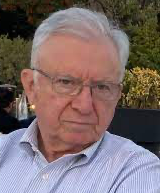
Türkiye Faced with Multiple Challenges
Neither the word “shocking” nor any of its synonyms, such as “appalling” or “distressing”, can properly describe the latest political developments in Türkiye. The İstanbul province has a Metropolitan Municipality and 39 county municipalities. In the March 2024 municipal elections, the Republican People’s Party (CHP) won the İstanbul Metropolitan Municipality and 26 county municipalities, whereas the ruling Justice and Development Party (AKP) won only 13.
Currently, Mr. Ekrem İmamoğlu, Mayor of Istanbul since 2019 and CHP’s candidate for the upcoming Turkish presidential election, and eleven district mayors from Istanbul are incarcerated. Including those from other regions of the country, 17 CHP mayors are now in prison. Hundreds are detained or arrested. In brief, the CHP is under siege in Istanbul, and this is likely to spread to other provinces.
As I said in a recent post, “… the AKP government’s top priority is to tear apart the CHP, the main opposition party, and send it to the dustbin of history, in cooperation with likely partners from within the party. Would this throw the country into turmoil? Definitely, but AKP’s principal objective remains the perpetuation of its rule.”
The political reconquest of İstanbul appears to be a major step in that direction. But that is not all.
Mr. Özgür Özel was elected CHP President on November 5, 2023, at the 38th regular convention of the party, ending Kemal Kılıçdaroğlu’s 13 years of disastrous leadership when the Party lost election after election. A former mayor and some party members brought a suit against the convention, demanding its annulment. Today, the case was taken up by a court in Ankara, which postponed it to October 24, 2025. Such a case is unthinkable in any Western democracy.
These developments underline Türkiye’s steep democratic decline. They undermine the rule of law. They deepen Türkiye’s polarization problem. They render economic recovery mission impossible. They negatively impact Türkiye’s international image and its foreign policy interests.
What is most shocking is that the Turkish Parliament’s “National Solidarity, Brotherhood and Democracy Committee” will hold its next meeting on Wednesday. The Committee was created to expand political support for the negotiations launched by the government to promote the project “terrorless Türkiye,” in other words, the ongoing talks with the PKK.
Türkiye’s current political developments and the title of this committee are in glaring contradiction. The AKP and its junior partner, the Nationalist Movement Party (MHP), are negotiating with the PKK, but they are waging war against Türkiye’s main opposition party. “National solidarity”, “brotherhood”, and “democracy” do not rhyme with AKP’s policies.
For the people of Türkiye, the only way to turn the committee’s title into reality is to restore democratic rule.
Unfortunately, all of this is happening while the wars in Ukraine and Gaza continue, straining transatlantic relations.
Last Saturday, President Trump told NATO allies in a letter that the US would impose “major” sanctions on Russia only when they stop buying oil from Russia, thereby shifting the responsibility to Europe and reaffirming that Washington’s “cooperation with allies” only comes at a cost. In other words, transatlantic relations are increasingly characterized by a “trade deal mentality.” “Agreement on common threats” and “allied solidarity” seem to have lost some of their importance. Looking back, this is understandable only to a certain point, but no more.
Developments in Syria continue to be a major security challenge for Ankara. However, there is no denying that the AKP’s Syria policy since the Arab Spring has largely contributed to this.
According to the Turkish Immigration Authority’s May 2025 official figures, there are 2,723,000 Syrian refugees in Türkiye, nearly 500,000 in the İstanbul province. However, judging by the government’s official rate of inflation, those figures could be even higher.
Yet, this might not be the end of Türkiye’s refugee problem. The Netanyahu government is determined to send the Gazans, and then the Palestinians of the West Bank, to other countries, and reportedly, is having talks with some governments to that end. The AKP government has been an ardent supporter of the Palestinian cause. Mr. Netanyahu would not dare order an air attack on those Hamas members living in Türkiye, as he did in the case of Qatar, but he may try sending hundreds of thousands of Gazans to settle in Türkiye in an act of revenge.
If any country or intermediaries were to approach Ankara with such ideas, and offering some incentives, the AKP government should reject them right away, as this would be the denial of what the AKP has been saying about the Palestinian cause for years. The AKP may continue its support for the two-state solution, like many others. However, the future of Gazans is the responsibility of the Arab League, with twenty-two member states, not Türkiye.
Moreover, for some of our “allies”, such initiatives could be yet another attempt to destroy Türkiye’s Republican identity and push Türkiye irreversibly into the Middle East. And no patriotic Turkish government can agree with that. Türkiye, despite its strained relations with the West over the past two decades, remains a member of NATO, the Council of Europe, the OSCE, and the OECD. The question is, “For how long under continuing autocratic rule?”
